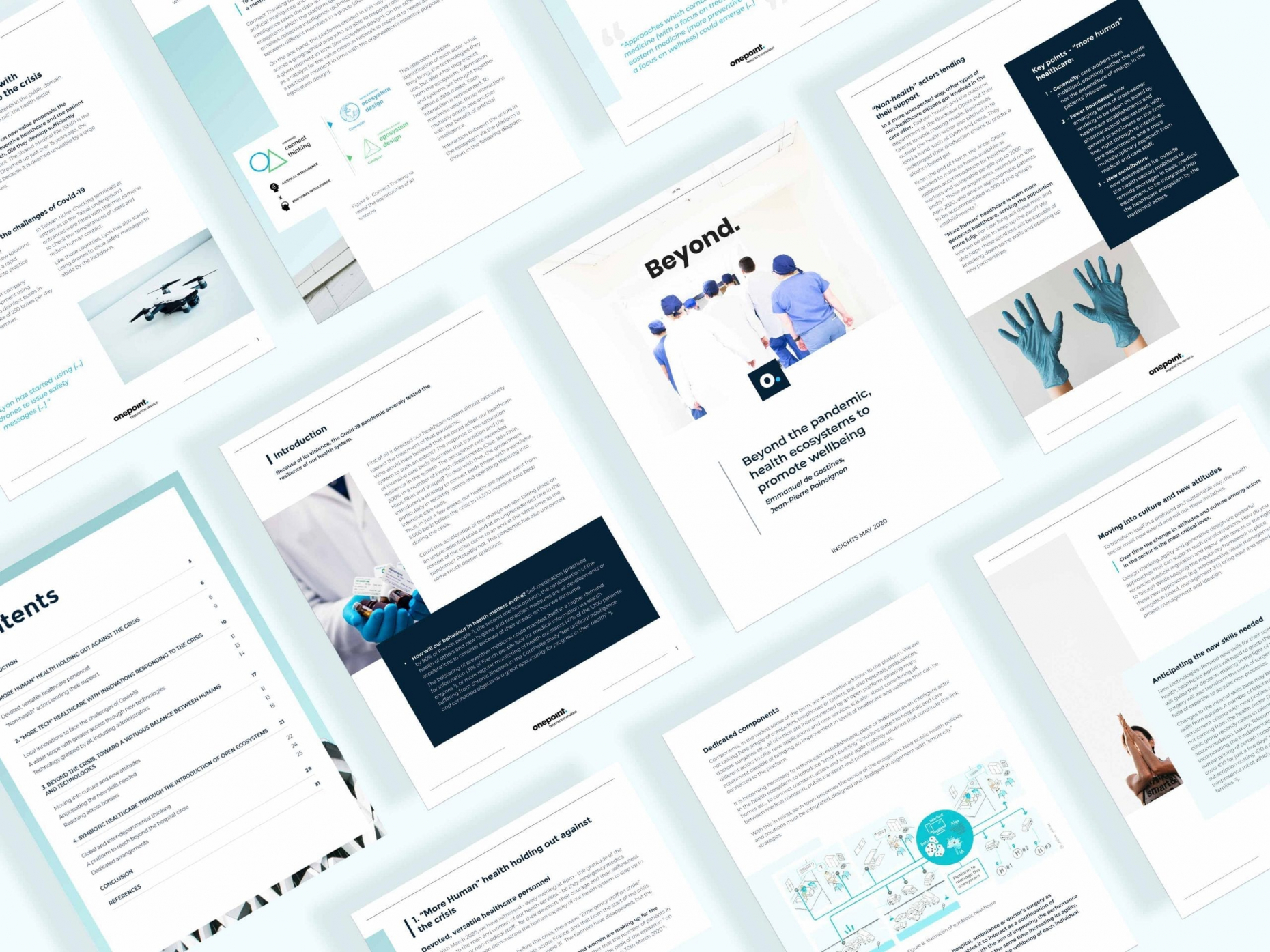First of all it directed our healthcare system almost exclusively toward the treatment of that pandemic.
Who would have believed that we could adapt our healthcare syste to sych an extent? The response to the saturation of intensive care beds illustrates that transition and the resilience in the system.
The occupation rate exceeded 200% in a number of French departments (Oise, Bas-Rhin, Haut-Rhin, and Vosges).
To deal with that, the government introduced a strategy to convert beds (those with a ventilator, particularly in recovery rooms and operating theatres) into intensive care beds.
Thus, in just a few weeks, our healthcare system went from 5,000 beds before the crsis to 14,500 intensive care beds during the crisis.
Could this accelerationof the change we saw taking place on an unprecedented scale and at an unprecedented rate in the context of the crisis come to an end at the same time as the pandemic? Probably not. This pandemic has also uncovered some much deeper questions.
- How will our behaviour in health matters evolve?
Self-medication (practised by 80% of French people), the second medical opinion, the consideration of the healt of ohters and new hygiene and protection measures are all developments or accelerations to consider because of their impact on how we consume.
The bolstering of preventive medicine could manifest istelf in a higher demand for information (31% of French people look for medical information via search engines), or more regular monitoring of health constants (47% of the 1,200 patients suffering from chronic illnesses in the ComPaRe study “see artificial intelligence and connected objects as a great oppotunity for progress in their health”).
- How will our relationship with personal and collective freedoms evolve?
We are paradoxical. We do not want to share our data when we are healthy. By contrast, we are ready to communicate everything if we are ill (62% of French people are ready to use the StopCoVid application).
To facilitate the use and sharing of health data, for example, what health data management policy should we put in place to reconcile these opposing points of view?
- How will time relationships change in the health field?
The release to market of a new active infredient takes an average of ten years or so. A medical device requires 5 years’ development. A service or application can take between 3 and 18 months. The race against the clock generated by the pandemic has, rightly or wrongly, raised questions about development processes and the associated delays.
- How will our health policies evolve?
What level of national or European sovereignty do we want? Do we want to see the resurgence of the welfare state? Initially there were calls for renationalisation, relocalisation or repatriation of strategic sections of the pharmaceutical industry (for drugs, medical equipment and excipients), potentially to the detriment of international collaboration which could bring coordinated global responses to the future large scale crises.
Currently, more than 60% of excipients in laboratories such as SANOFI are produced in China. Others highlight Europe’s difficulties in acting in the face of the crisis when health policies are dealt with at a national level.
So many balances to be struck.
In normal times, all the answers to these questions would be dealt with via a cyclical approach. It is a pretty certain bet that the waves of pandemic we will experience will accelerate those cycles and shift their focus to three main areas: more human involvement, more technologies, and a virtuous equilibrium between the two.
Lastly, our health system will be so much more resilient if these human and technological factors are brought together into an ecosystem, symbiotic health.
Would you like to know more? Download the complete Beyond. viewpoint
Author
Emmanuel de Gastines – PARTNER
Jean-Pierre Poinsignon – PARTNER

